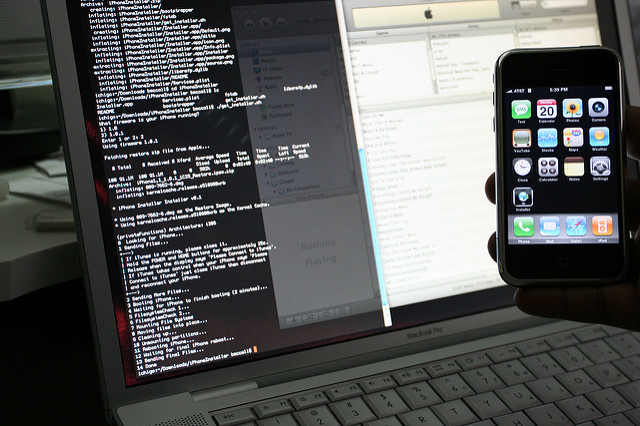The recent battle between Apple and the FBI over whether the tech giant should help it unlock the San Bernardino killer’s iPhone sparked a fascinating debate.
It is a dilemma that the world has increasingly struggled with since Sept. 11, 2001: How much privacy should people be willing to sacrifice for the sake of security?
The issue, in so far, as it relates to the iPhone case, has now been resolved. One day before U.S. Magistrate Sheri Pym was set to rule on the government’s motion to force Apple to help it unlock the encrypted iPhone of the killer Syed Farook, the Justice Department withdrew its motion because, it stated a third party had unlocked the phone instead.
Nevertheless, the withdrawn motion raises perhaps an even more interesting question – who won, Apple or the FBI? Some would say it was Apple because they dug in their heels in their defence of privacy rights.
They demonstrated their resolve to stand up for their customers, a hugely important gesture in the post-Edward Snowden world, in which U.S. cell phone carriers’ disturbing collusion with the National Security Agency was exposed.
Designing software to help the FBI open the phone would set a terrible precedent, Apple argued, ultimately eroding their customers’ privacy rights.
On the other hand, the FBI could be viewed as the winner because it accomplished its objective in accessing the phone’s contents to perhaps learn more about why Farook and his wife, Tashfeen Malik, gunned down 14 people in a medical centre, and to investigate what ties they might have had with other terrorists.
The Bureau also sent a strong message to tech companies:
Cooperate with us or risk looking unpatriotic and soft on terror to the public.
What might look like a defeat for Apple – a third party managing to crack their encryption – could turn out to be a positive for the company if the case drives it to tighten its security. Many observers believe that the case has triggered, or perhaps shed light on, a form of arms race between tech developers and the government/hackers.
While the San Bernardino battle is over, it remains to be seen whether the U.S. government will push further in its broader war with Apple. Publicly, the FBI maintained it only sought access to Farook’s iPhone, but in law enforcement agencies around the world, locked iPhones are collecting dust in evidence lock-ups.
For years, Apple had been dutifully complying with government motions to unlock the phones under the federal All Writs Act but that changed in October 2015, when a federal judge in a Brooklyn (New York) drug case asked Apple whether such compliance was “burdensome.”
Apple filed an argument accordingly, the magistrate ruled in their favour, and since then the company has been fighting the All Writs Act requests in cases around the country.
In the Brooklyn drug case, Apple has until 15 April 2016 to respond to the government’s motion asking a District Court judge to overrule the magistrate.
A senior law enforcement official recently told Time magazine, “We in law enforcement have been saying for a while now that we need to strike the appropriate balance between privacy and security, where we have a system of strong encryption that allows us to protect our data and our privacy, but also allows some way for law enforcement to go to a judge and get a court order to obtain information that can help us prevent and solve crimes.”






